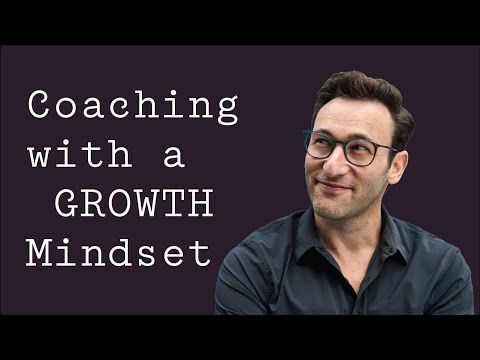Embarking on the entrepreneurial journey means confronting an array of challenges and opportunities that demand a constellation of skills. To thrive, entrepreneurs need to assimilate coaching skills that can accelerate their advancement, enhance their leadership capabilities, and refine their team management. This article illuminates how coaching skills for entrepreneurs can radically transform business ventures and empower leaders to reach unprecedented heights.
Coaching skills for entrepreneurs do more than foster growth—they ignite a path to innovative success. By integrating emotional intelligence, strategic questioning, resilience, a growth mindset, communication, mentorship, and time management, entrepreneurs can redefine professional excellence and not just aim to meet, but boldly surpass their business aspirations.

1. Leveraging Emotional Intelligence for Effective Leadership
Emotional intelligence (EI) is not just a buzzword; it’s a cornerstone for impactful leadership. Esteemed figures like Oprah Winfrey utilize EI to forge deep connections with their teams and audiences, demonstrating empathy and crafting a supportive workplace culture. Entrepreneurs can boost their EI by practicing active listening and nurturing self-awareness—skills that help them recognize and control emotional impulses.
Understanding team dynamics through emotional intelligence empowers leaders to make informed decisions. It enables entrepreneurs to navigate the intricacies of human behavior, ensuring they foster an environment conducive to creativity and collaboration. Emotional intelligence is the bridge that links leadership with harmony in any entrepreneurial journey.
For more insights on leadership skills training, you can explore leadership Skills training.

2. The Art of Strategic Questioning
Strategic questioning cracks open the door to innovation and discovery. Phil Knight, the visionary co-founder of Nike, wielded this skill by challenging conventional industry norms, paving the way for groundbreaking shoe designs and unique marketing strategies. Entrepreneurs should embrace this approach by posing open-ended questions to their teams, stimulating creative thinking and effective problem-solving.
Strategic questioning encourages teams to think expansively, considering possibilities beyond the obvious. When leaders question norms and challenge assumptions, they create a culture where innovation flourishes.
Understanding the define contingency can further assist entrepreneurs in preparing for unforeseen situations, enhancing their strategic acumen.

| Coaching Skill | Description | Benefits |
| Effective Communication | Ability to clearly convey ideas, actively listen, and build rapport with clients and team members. | Facilitates understanding and collaboration, leading to more effective leadership. |
| Selling | Mastery in presenting ideas persuasively and closing deals. | Enhances ability to attract investors, customers, and partnerships, driving business growth. |
| Focus | Skill in maintaining sustained attention on objectives amidst potential distractions. | Increases productivity and helps achieve business milestones efficiently. |
| Continuous Learning | Commitment to ongoing skill development and knowledge acquisition. | Keeps the entrepreneur updated with industry trends, fostering innovation and competitive edge. |
| Strategic Thinking | Capability to devise long-term plans based on industry analysis and business insight. | Enables informed decision-making that propels the business toward achieving its goals. |
| Interpersonal Skills | Ability to manage and motivate diverse personalities within a team through patience and diplomacy. | Builds a cohesive team, encourages engagement, and reduces conflict. |
3. Building Resilience through Feedback Integration
Growth flourishes when leaders embrace feedback as the lodestar that guides improvement. LinkedIn’s Reid Hoffman famously leveraged constructive criticism to guide company direction and product innovation. Entrepreneurs should encourage a culture of open, respectful feedback to refine processes and elevate products.
Creating an atmosphere where feedback is valued and integrated empowers teams to voice insights and concerns, fostering continuous improvement and a shared sense of ownership in the organization’s success.
Entrepreneurs seeking strategies to finance their ventures can explore venture capital Strategies to unlock potential growth opportunities.

4. Cultivating a Growth Mindset
Dr. Carol Dweck’s research on growth mindset sheds light on its significance for entrepreneurial triumph. Visionaries like Elon Musk have famously embraced challenges, learning from setbacks to fuel relentless innovation. Viewing challenges as opportunities and celebrating progress, not just outcomes, cultivates a fertile ground for sustainable growth.
Fostering a growth mindset invites a culture of exploration where experimentation is encouraged and failure is a stepping stone instead of a stumbling block. This mindset becomes the engine that propels entrepreneurs through trials and triumphs alike.
Learn about the dynamic journey from idea to innovation through stories like mcallen To Harlingen which exemplify the persistence needed in entrepreneurial pursuits.

5. Enhancing Communication Skills for Influence and Clarity
Effective communication is the linchpin of successful entrepreneurship. Apple’s Steve Jobs excelled at articulating vision with clarity and influence, inspiring employees and captivating customers. Entrepreneurs must hone the art of conveying their vision succinctly, ensuring team alignment and motivation.
By establishing transparent communication channels, leaders foster an environment where ideas are freely exchanged, and collective vision becomes reality. Clear communication mitigates misunderstandings and streamlines efforts towards common goals.
For personal branding insights, explore branding For public Speakers and learn to harness the power of a strong public image.
6. The Power of Mentorship and Networking
Mentorship and networking are indispensable for expanding business horizons. Richard Branson, founder of Virgin Group, swears by the guidance received from mentors and the expansive networks he cultivated. Entrepreneurs should actively seek mentors and build networks to gain insights, broaden perspectives, and unearth new opportunities.
A robust network offers a wealth of resources and support systems, essential for addressing diverse challenges and leveraging potential collaborations. Mentorship provides individualized guidance tailored to navigate specific entrepreneurial challenges.
For guidance on establishing networks and mentorship connections, explore Mentorship For business leaders to build meaningful professional relationships.
7. Time Management and Prioritization Skills
Time is a precious commodity, and managing it efficiently can dictate an entrepreneur’s success trajectory. Microsoft’s Bill Gates exemplifies mastery in allocating time by prioritizing tasks that align with long-term goals. Entrepreneurs can enhance their skills through tools like Eisenhower’s Matrix, focusing on impactful tasks while minimizing distractions.
Prioritization ensures that efforts are directed towards activities that support growth and innovation, enabling entrepreneurs to maximize productivity while maintaining work-life harmony.
Understanding the credit bureau definition can also assist in comprehensive financial management, ensuring informed business decisions.
Channeling Entrepreneurial Mastery
The journey of mastering coaching skills for entrepreneurs transcends mere business growth; it embarks one on a transformative adventure. By folding these skills into their leadership repertoire, entrepreneurs cultivate resilient and flexible organizations capable of striking new paths of success. The assimilation of emotional intelligence, strategic questioning, resilience, mindset shifts, communication proficiency, mentorship, and effective time management crafts a blueprint not just for survival but for enduring achievement in the business arena.
With these skills firmly rooted, entrepreneurs stand prepared not only to confront challenges head-on but to transform them into springboards for innovation, ensuring their legacies are defined by perpetual learning and excellence.
Coaching Skills for Entrepreneurs: Unraveling Success
Becoming an entrepreneur isn’t all about ideas and business plans. A critical aspect that often holds incontrovertible importance is developing remarkable coaching skills for entrepreneurs. This hidden key can unlock greater accomplishments and lead teams to victory. But, did you know that the concept of using questions to coach and develop others dates back to ancient philosophers who thrived on dialogues and inquiries? Speaking skills for guiding teams have evolved and continue to gain weight in today’s business landscape. Just like a North Carolina deed Of trust or mortgage deed, which serves a specific function in property ownership, coaching has a distinct role in fostering entrepreneurial growth and streamlining communication within teams.
Surprising Origins and Historical Ties
Let’s dig deeper! Coaching isn’t just a modern business buzzword. It’s been around in various forms, pivoting in different life arenas. Entrepreneurs can take cues from illustrious figures and unprecedented places. Remember, even maddeningly unique tales like Joseph Metheny, who was famously known for his troubling narrative, remind us of the importance of narrative in shaping one’s path. While this story might seem morbid, it underscores storytelling’s profound power—a primary skill for entrepreneurs striving to communicate and inspire effectively.
Engaging Trivia and Lessons Learned
Now, here’s something curious to chew on while sipping that hot cup of joe—did you know that the ancient Roman orators used specific techniques to get their audience’s attention, much like today’s public speakers? This illustrates just how timeless effective coaching and speaking strategies truly are. In entrepreneur circles, much is borrowed from history, melding these methods with innovative thinking, which is pivotal for those seeking to hone coaching skills for entrepreneurs.
In conclusion, mastering coaching skills as an entrepreneur isn’t a paint-by-numbers task. With historical roots and diverse influences, these skills aren’t just a cherry on top—they’re woven into the fabric of success. From ancient stories to modern-day entrepreneurial challenges, these skills help navigate both obstacles and opportunities. Just like well-told narratives, good coaching skills for entrepreneurs can spellbind, motivate, and ultimately lead you and your team to greater heights.

How to coach an entrepreneur?
To coach an entrepreneur effectively, focus on improving their communication, sales, focus, and learning abilities. Help them develop a solid strategy and foster their inherent business sense. Encouragement to learn continuously is key, as it’s a pivotal skill for both entrepreneurship and life in general.
What are the four core coaching skills?
The four core coaching skills include effective communication, active listening, empathy, and goal-setting. A lot hinges on building rapport and using these skills to connect with and guide individuals toward their personal and professional growth.
What skills do you need to be a business coach?
To be a business coach, you need excellent interpersonal skills, including patience and diplomacy, along with deep knowledge of business operations and strategy development. These skills enable you to motivate and lead diverse personalities within a team effectively.
What are the 5 coaching characteristics?
The five coaching characteristics are empathy, patience, honesty, positivity, and consistency. These traits help the coach connect with coachees, instill trust, and create a supportive environment for growth and development.
How do you mentor an entrepreneur?
Mentoring an entrepreneur involves guiding them in honing their communication skills, enhancing their sales strategies, advocating for continuous learning, and focusing on strategic thinking. Encouragement and insights on real-world applications are crucial for their development.
How to coach a startup?
Coaching a startup requires a focus on strategy development, market understanding, financial management, and team leadership. It’s important to help the startup recognize its strengths and weaknesses while guiding them towards sustainable growth.
What are the 7 P’s of coaching?
The seven P’s of coaching are purpose, possibility, process, performance, passion, perseverance, and patience. These elements work together to create a comprehensive framework that helps guide coaching sessions effectively.
What are the 5 R’s of coaching?
The five R’s of coaching are relationship, reflection, renewal, results, and resilience. They serve as key components in building an effective coaching structure that promotes continuous improvement and goal achievement.
What are the 3 C’s of coaching?
The three C’s of coaching are clarity, challenge, and commitment. These principles help structure coaching engagements to ensure that goals are clearly defined, obstacles are managed, and clients remain committed to their personal and professional development.
What is business coaching style?
A business coaching style typically involves a structured approach to guidance, focusing on strategies that drive business success and personal growth. It emphasizes both the practical aspects of business and personal attributes such as leadership and resilience.
What is a business coach for entrepreneurs?
A business coach for entrepreneurs assists in identifying strengths and weaknesses, setting strategic goals, and developing necessary business and personal skills. Their guidance helps entrepreneurs navigate challenges and leverage opportunities effectively.
What qualities do coaches need?
Coaches need qualities such as empathy, strong communication skills, adaptability, confidence, and patience. These traits enable coaches to build trust, provide valuable feedback, and inspire continuous development in their clients.
What are the 5 E’s of coaching?
The five E’s of coaching are engage, explore, empower, evaluate, and enrich. These elements are integral to establishing a productive coaching relationship and ensuring the coachee’s progression throughout the process.
What are the 5 Ps of coaching?
The five Ps of coaching are purpose, people, process, performance, and patience. These elements guide both the strategic and relational aspects of coaching, ensuring holistic development and successful outcomes.
What are the ABCs of coaching?
The ABCs of coaching refer to action, belief, and connection. These are essential components for motivating coachees to set ambitious goals, maintain a positive mindset, and build trustworthy relationships.
How do you professionally coach someone?
Professionally coaching someone involves creating a safe, supportive environment while guiding them toward clear goals. It’s important to listen actively, provide constructive feedback, and tailor the coaching to the individual’s unique needs.
How do you coach someone in business?
Coaching someone in business centers around fostering their strategic thinking, leadership skills, and operational understanding. It involves setting clear objectives, identifying skill gaps, and focusing on continuous personal and business improvement.
What are the 4 rules for being an entrepreneur?
The four rules for being an entrepreneur include effective communication, sales skills, the ability to focus, and a passion for continuous learning. A sound strategy that leverages these skills is essential for entrepreneurial success.
What is the difference between a business coach and an entrepreneur coach?
A business coach focuses on organizational growth and strategy, while an entrepreneur coach specifically aids in honing the entrepreneur’s personal skills and mindset to better lead and innovate within their business arena.









